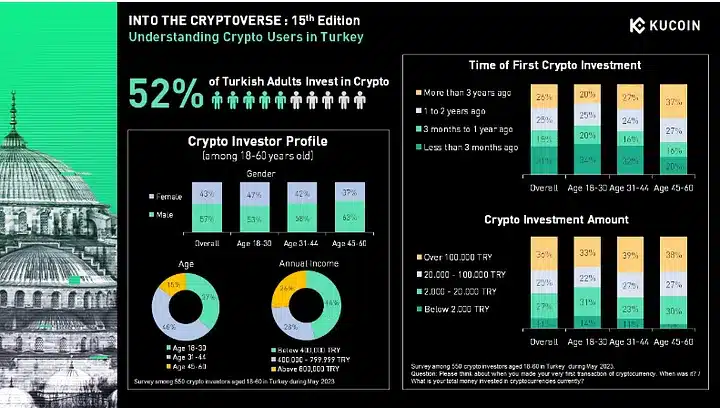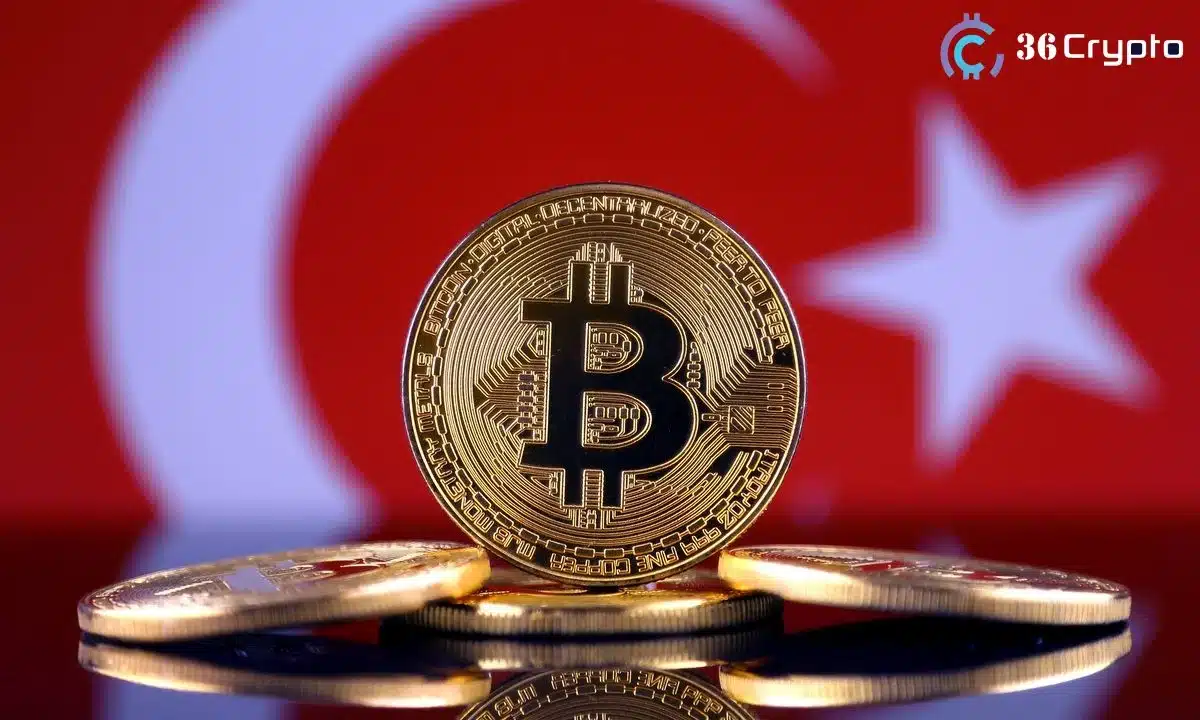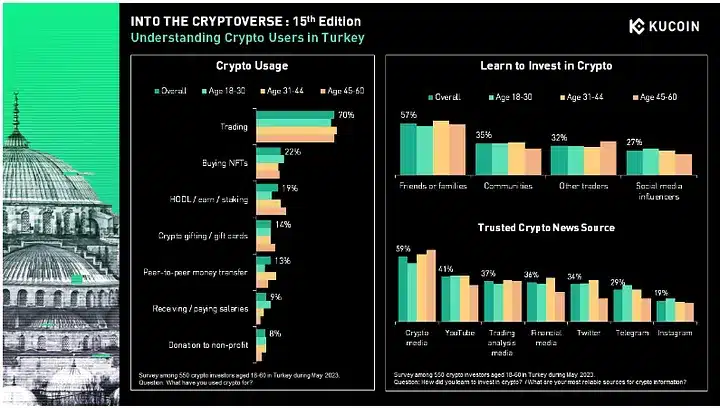Last updated on April 9th, 2025 at 12:09 pm
- Regulation of cryptocurrency exchanges in Turkey has come under the purview of the Ministry of Treasury and Finance (MTP).
- The digital Turkish lira project is getting closer to the people every day.
- Faruk Fatih Ozer, the CEO of the Turkish cryptocurrency exchange Thodex, who was later apprehended, was sentenced to 11,196 years in prison.
“Half of Turkey’s adult population are crypto investors,” my friend shared over breakfast. It’s no secret that due to the inflation crisis, the lira has fallen by more than 50% against the US dollar, which has sparked a sudden interest in digital assets among citizens.
The Rise and Fall of Thodex
Founded in 2017, Thodex was Turkey’s largest cryptocurrency exchange before its collapse. According to our previous reports, after the collapse, around 400,000 users were unable to access their cryptocurrency deposits, totaling approximately $2 billion.

Faruk Fatih Ozer, the CEO of Thodex
Ozer stated after closing trading, that the main reason was an unidentified pause in foreign investments, which required a four- to five-day break.
However, the very next day, the CEO changed his version, claiming that cyberattacks had forced the trading to stop. Despite this, the company assured that customers’ funds remained secure and promised to return the money to investors.
After the platform’s collapse, Faruk Fatih Ozer left Turkey; some sources reported that he was hiding in Albania. Eventually, in August 2022, he was found in Vlora, an important coastal city in Albania.
The Thodex collapse had a shocking effect on the cryptocurrency community, especially in Turkey. Moreover, the collapse coincided with the devaluation of the Turkish lira and subsequent inflation in the country. A coincidence? I don’t think so.
Cryptocurrency Adoption in Turkey According to KuCoin Statistic
In the midst of recent events, over the past couple of years, Turkey has seen a significant increase in cryptocurrency adoption as citizens seek ways to combat rising inflation. A recent report from KuCoin Exchange shows that cryptocurrency adoption in the country has increased from 40% to 52% between 2021 and 2023.

Acceptance of cryptocurrencies amid worrisome inflation
Despite the Turkish president’s negative stance on cryptocurrencies and his opposition to them, there is a trend among young people in Turkey that confirms growing interest in cryptocurrencies. Turkey’s struggle with rising inflation, which led to the lira losing over 50% against the US dollar, was documented by Invezz.com news in 2023.
“Understanding Cryptocurrency Users” Survey by KuCoin
A survey of 500 participants revealed significant shifts in investments and cryptocurrency ownership in Turkey. Various factors contribute to the increased interest in cryptocurrencies, including the search for alternatives in the face of rapid inflation.
Among those surveyed, 58% invest in digital assets to accumulate wealth in the long term. This indicates that many Turkish citizens see cryptocurrency as a profitable investment option to preserve and grow their wealth, as inflation deteriorates the economy. Additionally, 37% of participants view cryptocurrency as a means of savings, emphasizing the decline in the value of the Turkish lira.
The results show that Turks recognize and trust digital assets. While men are more likely to invest in cryptocurrency, KuCoin’s report shows changes in this trend.
Thanks to this survey, young female investors are joining this trend: 47% of market players aged 18 to 30 are women. This confirms the industry’s recognition by a wide range of people, including both women and men.
Bitcoin remains the favorite asset
Bitcoin remained popular among Turkish players, with 71% of participants reporting ownership. Ethereum followed at 45%. Furthermore, stablecoins attracted 33% of market players, emphasizing the demand for stable assets for value preservation, transfer, and trading of digital products.
The report also highlights a significant increase in interest in Metaverse, meme coins, and non-fungible tokens (NFTs) by 19%, 18%, and 21%, respectively. Players aged 31 to 44 are more interested in meme coins, the Metaverse, and NFTs. Meanwhile, DeFi assets and public networks hold 12% each.
27% of participants attribute their entry into the world of cryptocurrencies to influential figures in social media. Particularly, the younger generation considers platforms like YouTube (41%), Twitter (34%), Telegram (29%), and Instagram (19%) as reliable sources of news.
KuCoin CEO Johnny Lyu stated in the interview,
“We are pleased to present this comprehensive report that sheds light on the dynamic cryptocurrency community in Turkey. We aim to contribute to a more informed crypto landscape through the ‘Crypto Universe Review’ and promote responsible cryptocurrency usage. We hope this report will stimulate meaningful discussions and contribute to the collective knowledge of the global crypto community.”

KuCoin CEO Johnny Lyu
The report by KuCoin is intended to provide readers with meaningful data and analysis so that they can make informed decisions in the cryptocurrency space and explore new opportunities in the crypto world.
The Connection of Cryptocurrency with Other Industries
Cryptocurrencies are not just taking over the financial sector. If you follow activity on Twitter, you’ll see that the interests of all users can be divided into numerous mini-communities that interact with each other. From ordinary homemakers posting photos of their lives to football fans and even celebrities expressing their views on cryptocurrencies.
One of the greatest stand-up comedians in the country, Cam Yılmaz, who has received recognition nationwide, has also shown a positive stance towards cryptocurrency. His Twitter account header includes a link to OpenSea, which features over a hundred different NFTs.
Additionally, with the football season starting, you can increasingly see the beloved FC Trabzonspor, which bears one of the most popular exchanges in Europe — WhiteBIT on its jersey, thus popularizing cryptocurrencies among football fans.
Conclusion
Turkey has witnessed a remarkable surge in cryptocurrency adoption. As the Turkish lira faced a significant devaluation and inflation crisis, citizens turned to digital assets as a means of wealth preservation and investment. The numbers tell a compelling story — from a substantial increase in cryptocurrency ownership to a growing trust in digital assets among Turks.
As Turkey navigates economic challenges, cryptocurrency adoption continues to grow, reshaping the financial landscape. With the support of all people including influential figures and even football clubs embracing cryptocurrencies, it’s evident that the crypto revolution is not confined to the financial sector but is becoming an integral part of various industries and communities in Turkey.
In conclusion, Turkey’s journey into the world of cryptocurrencies is marked by challenges, resilience, and growing interest among its people. The future holds exciting prospects for the intersection of traditional finance and digital assets in this dynamic landscape.

